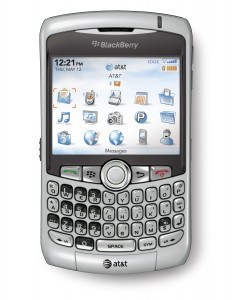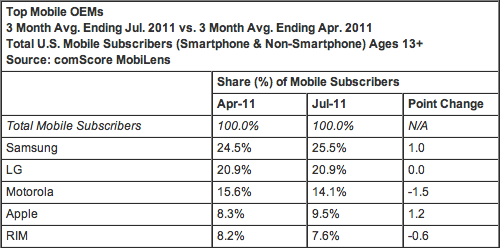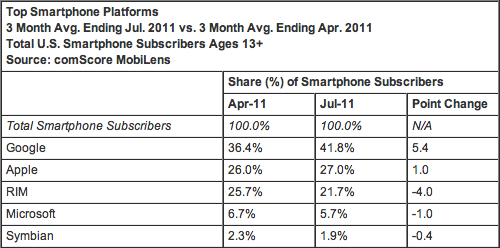 The U.S. government has filed a lawsuit to block a $39 billion dollar merger deal between AT&T and T-Mobile USA, citing substantially reduced competition for American cell phone customers.
The U.S. government has filed a lawsuit to block a $39 billion dollar merger deal between AT&T and T-Mobile USA, citing substantially reduced competition for American cell phone customers.
“AT&T’s elimination of T-Mobile as an independent, low-priced rival would remove a significant competitive force from the market,” the Justice Dept. said in its filing.
“We are seeking to block this deal in order to maintain a vibrant and competitive marketplace that allows everyone to benefit from lower prices and better quality and innovative products,” said James M. Cole, deputy attorney general.
News that the merger could be ultimately blocked by the Justice Department caused AT&T and T-Mobile shares to lose as much as seven percent of their value. But shares of competitor Sprint, considered the most vulnerable remaining competitor to AT&T and Verizon Wireless are soaring this morning by more than seven percent.
Cole’s statement was harsh in its condemnation of the merger’s benefits touted by AT&T:
The Department filed its lawsuit because we believe the combination of AT&T and T-Mobile would result in tens of millions of consumers all across the United States facing higher prices, fewer choices and lower quality products for their mobile wireless services.
Consumers across the country, including those in rural areas and those with lower incomes, have benefitted from competition among the nation’s wireless carriers, particularly the four remaining national carriers. This lawsuit seeks to ensure that everyone can continue to reap the benefits of that competition.
Right now, four nationwide providers account for more than 90 percent of the mobile wireless connections in America, and preserving competition among them is crucial. For instance, AT&T and T-Mobile currently compete head-to-head in 97 of the nation’s largest 100 cellular marketing areas. They also compete nationwide to attract business and government customers. Were the merger to proceed, there would only be three providers with 90 percent of the market, and competition among the remaining competitors on all dimensions—including price, quality, and innovation—would be diminished.
[flv width=”640″ height=”380″]http://www.phillipdampier.com/video/Bloomberg Justice Targets ATT T-Mobile Merger 8-31-11.flv[/flv]
Bloomberg News delivered the breaking news that the Department of Justice would oppose the merger of AT&T and T-Mobile on antitrust grounds. (2 minutes)
The deal falling through would cost AT&T a $3 billion dollar failed deal breakup fee, and a parting gift of wireless spectrum to T-Mobile USA, a unit of Deutsche Telekom AG.
Observers suggest part of the reason for the rejection may have been an attempt by the Obama Administration to draw a line in the sand for the size of large mergers and acquisitions it will tolerate. The antitrust division of the Dept. of Justice has recently become more aggressive in reviewing large corporate merger transactions, and had the Administration approved the deal between AT&T and T-Mobile, the acceptance of permitting two companies to control the majority of wireless customers would have arguably meant virtually any merger deal would have passed muster, regardless of the implications of concentrated market share.
Traditionally, opposition from the Dept. of Justice spells doom for most merger proposals. But AT&T is no ordinary corporate entity. In addition to being confident enough to agree to a $3 billion breakup fee and giving away valuable spectrum should the deal fail, AT&T’s lobbying efforts and legal budget are unparalleled, and the company may decide to fight to preserve the deal using political and legal channels. The terms of the merger could also be renegotiated, agreeing to spin off more customers to reduce market share, or compromising on consumer protections or other givebacks.
But for most companies, opposition from the government’s antitrust division is a high hurdle to overcome, and many won’t even try.
[flv]http://www.phillipdampier.com/video/CNBC Justice Blocks ATT T-Mobile 8-31-11.flv[/flv]
CNBC delivered the stunned reaction among its own anchors and telecommunications industry analysts about the Justice Department’s strong objections to the proposed merger. Many on Wall Street predicted this was a ‘done deal.’ (12 minutes)
Should AT&T and T-Mobile abort the deal, that doesn’t necessarily guarantee Americans will still have four major carriers to choose from. Deutsche Telekom maintains a strong interest in selling off T-Mobile USA, and has reduced investment in the company. That could renew rumors of a merger deal between T-Mobile and Sprint.
AT&T executives as late as this morning seemed to have no advance warning of the Justice Department’s decision. CEO Randall Stephenson spent much of his morning suggesting AT&T would hire thousands of call center workers as a result of the merger.
After learning of the impending lawsuit, AT&T released a statement: “We are surprised and disappointed by today’s action, particularly since we have met repeatedly with the Department of Justice and there was no indication from the DOJ that this action was being contemplated,” the statement said. “The DOJ has the burden of proving alleged anti-competitive affects and we intend to vigorously contest this matter in court.”
[flv]http://www.phillipdampier.com/video/CNBC Justice Press Conference on Blocking Merger 8-31-11.flv[/flv]
CNBC reporters and analysts react to the impact the Justice Department’s objections are having on the entire telecommunications business sector. The question now being pondered at AT&T: Will it fight for the deal or will it fold? (5 minutes)


 Subscribe
Subscribe







